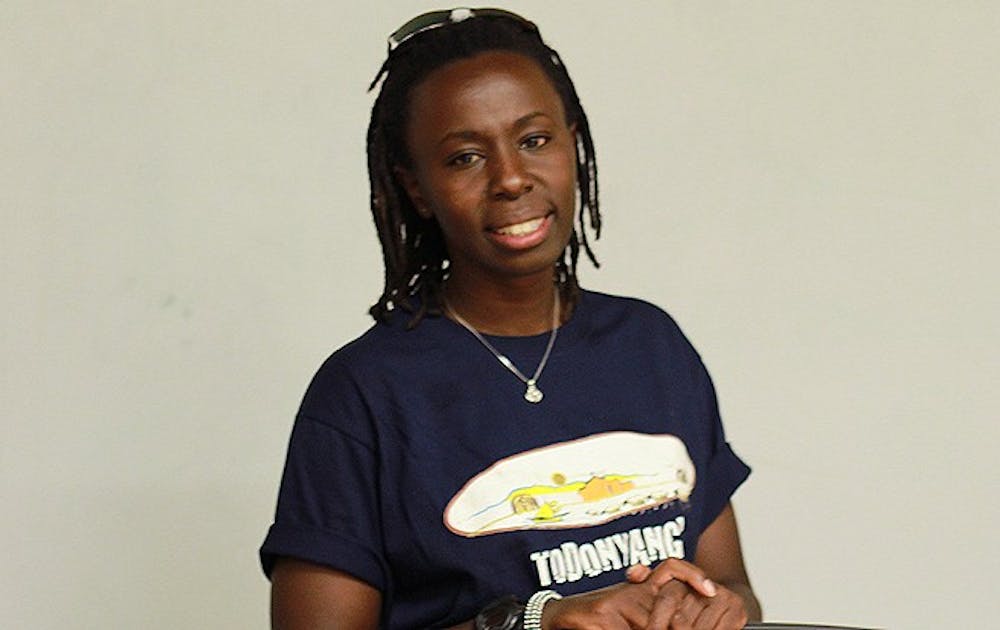Internationally recognized grassroots organizer Ikal Angelei warned against the consequences of a new hydroelectric plant in Ethiopia in a talk Friday.
Angelei, winner of the 2012 Goldman Environmental Prize, spoke at Duke Sept. 14, reaffirming her fight to protect marginalized tribes living near Kenya’s Lake Turkana whose livelihoods could be greatly affected by the construction of the Gibe III Dam in Ethiopia. If completed, the dam would be the largest hydroelectric plant in Africa.
“It isn’t easy, but the people need to understand what’s going on so they can either keep fighting or give up,” she said. “We give them the information to keep fighting.”
Angelei detailed her fight against the Gibe III dam over the past four years, noting that she first learned about the plans in 2008, two years after the project had begun. She founded the nonprofit Friends for Lake Turkana that year to fight for the rights of the 500,000 people who could be severely affected by the dam. The dam is estimated to deplete the amount of water flowing into Lake Turkana by 20 to 30 percent annually, and phosphates from the new agriculture supported by the dam could have environmental consequences downstream that would inevitably cause conflict between the tribes over resources, Angelei said.
When asked about her strategies at the onset of her fight, Ikal laughed and stated that there is never really a strategy in the beginning.
Thus far, Ikal has seen success in her work—she has convinced the World Bank, the European Investment Bank and the African Development Bank to withdraw their investments in the project. She now faces her last obstacle, the Industrial and Commercial Bank of China.
Ikal now seeks to forge a meeting between Ethiopia and Kenya, in recognition that the dam project has moved beyond the boundaries of Lake Turkana. To this end she said she has begun focusing on the larger issues of resource scarcity, because the whole of Africa needs to discuss where the continent is going in regards to energy and water.
Angelei noted that negotiations with China could prove difficult, given the Chinese government’s policies regarding foreign activists.
The fight in Africa began with the project to protect the tribes around Lake Turkana, but has expanded to the entire continent, she said. She added that the problems will continue to expand until Africa decides how to allocate the continent’s energy and water.
“It started with one [problem], but we realized it is all little pockets of problems,” she said.
Angelei said she hopes the Gibe III Dam issue will gain publicity and raise awareness for people in the area. She accomplished her goal, said Erika Weinthal, associate professor of environmental policy and associate dean for international programs at the Nicholas School of the Environment, adding that Angelei’s speech resonated with students.
“This has been an inspirational visit for many students to meet with a young leader in the environmental movement,” she said.
Freshman Carolina Madrid said Angelei was an image of inspiration.
“For someone who doesn’t necessarily have an interest in the environment, to see that Ikal is not necessarily an expert because she’s still learning—it was inspiring that she was taking a risk,” Madrid said. “It makes you feel like you can go out and do something like this.”
Get The Chronicle straight to your inbox
Signup for our weekly newsletter. Cancel at any time.

